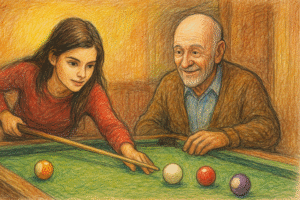In 2019 Lamar Odom published his memoirs called Darkness to Light. For those who are not very familiar with the world of NBA, Lamar Odom was one of the stars of the NBA. He belonged to the Dream Team at the beginning of this century, and he won a basketball World Cup in 2010. He also won two gold rings with the Los Angeles Lakers and was consecrated as the best “Sixth Man” in 2011.
With all this, it would seem that his life was a complete success. However, it was not so, because Lamar had serious problems with drugs and sex, which led him to a point that almost ended his life. He had 6 strokes and everyone thought he had died. However, God took pity on him and gave him another chance.
In his confessions, he admitted that he spent around 100 million dollars on drugs, that he needed women as an escape in his life, that he had unprotected sex with them, and that he had to pay for many abortions throughout his life. All these disorders brought him very close to death. Lamar’s father was also a drug addict and he said, “passed the gene on to me.”
In reality, genes are not to blame for something like this. Man is not born knowing chemistry, or literature, or mathematics. Those things do not come in the genes. Nor are we born knowing how to take drugs, or steal, or kill; those things do not come in our genes either. Nor are we born knowing how to love, nor are we born knowing how to relate to others without selfishness… none of that is in our genes, all that is information that we receive. We learn all this from our parents, uncles, aunts, grandparents, teachers, friends, TV, internet, etc. We make decisions to follow the good teachings or the bad teachings, the good examples or the bad examples, etc. In fact Lamar wrote: “It was just an asinine decision I made…. If I knew that it was going to affect my life the way it did, I would’ve never even thought about it. Never. But I did it. It turned out to be a life-altering decision.”
All this leaves us with two lessons: the first and most obvious lesson is that we must be attentive to discern what is good and what is bad, and we should not imitate or do what others do without first thinking and discerning whether it is something good for us or not.
The second lesson is that just as others teach us with their words and examples, we also consciously or unconsciously (because many times we do not realize that we are giving a bad example) teach others. We, human beings, look to each other and imitate each other; hence it is important for us to pay attention to what we do, not only for our own sake but also for the sake of others, so that we can be a light for others and not darkness.





